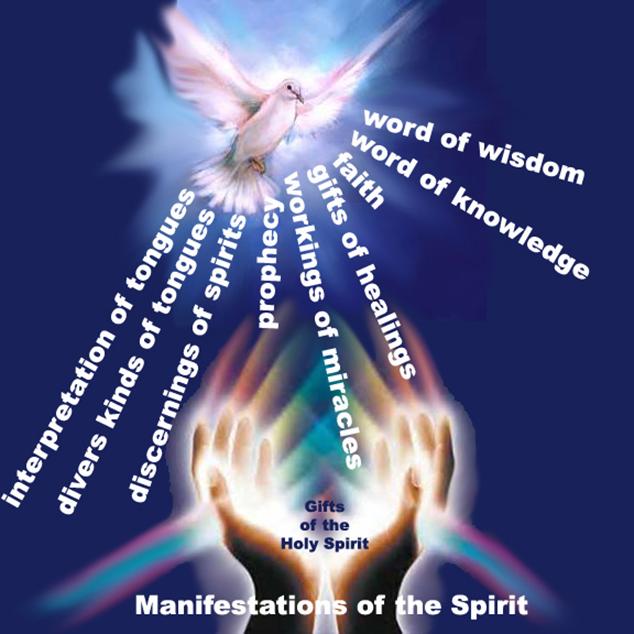Associates Degree
Associate of Religious Arts
The A.R.A. is a 60 credit hour degree that serves as the first step toward the Bachelor Degree of Religious Arts additional degrees or simply to provide an in-depth knowledge of the Bible.
Any of these lessons may be taken as a single course.
Prerequisites:
- High school diploma or G.E.D.
- Official transcripts (sealed, unopened) sent directly to HPM.B.C.S. reflecting any coursework completed at an approved college, university, or seminary.
General Requirements
- New Testament
- Church History 1
- Church History 2
- Christian Doctrine
- Nine Gifts of the Spirit
- Soteriology
- The Acts of the Apostles
- The Life and epistles of St. Paul
- A Guide to the Bible
Costs: - Enrollment Fee: $80.00 per Course
- *All fees are non-refundable.
All courses are four credit hours. A GPA of 2.0 must be maintained.

The Bible Is Sort of Like the Universe
If you look at the universe, you see everything existing in an
orderly fashion and following established natural laws. You
won’t find the sun rising one day in the east and another day in
the west. The moon passes through established cycles, and
gravity always exerts a pulling force. You will never perform a
vertical leap without coming down again. You see, God the
Creator does everything in an orderly way. He is infinitely well
organized. So we shouldn’t be surprised to learn that His written
Word, the Bible, is well organized.
The Bible contains two parts: the Old Testament and the
New Testament, so named because they involve two great
covenants (testaments). These are the Mosaic Covenant given at
Mount Sinai (Exodus 24:8) and the New Covenant introduced
by Jesus at the Last Supper (Matthew26:28).
by Jesus at the Last Supper (Matthew26:28).
This is the first of 50 studies on Basic Christian Doctrine. Each study will include 10
summary statements, explanations of the terms and topics covered, and the main
Scripture verses to study. The Bible is our textbook, and it places a high value on
doctrine. For example, God often says, “I want you to know” (I Cor. 11:3; Col. 2:1). God
gave us the Bible so that we might know certain important things (I John 5:13). Sadly, too
many Christians know very little about the Bible and Christian doctrine. They often know
more about sports than about God’s Word. This series will study the basics for beginners,
but also give teaching for those who are more advanced. It will cover Christian doctrine
from the Bible, not the theories of philosophy, psychology, opinions, or false religions.
History has two sides, a divine, and a human. On the part of God, it is his revelation in the order
of time (as the creation is his revelation in the order of space), and the successive unfolding of a
plan of infinite wisdom, justice, and mercy, looking to his glory and the eternal happiness of
mankind. On the part of man, history is the biography of the human race and the gradual
development, both normal and abnormal, of all its physical, intellectual, and moral forces to the
7
History of the Christian Church, Volume I: Apostolic Christianity. Philip Schaff
A.D. 1-100.
final consummation at the general judgment, with its eternal rewards and punishments. The idea
of universal history presupposes the Christian idea of the unity of God, and the unity and common
destiny of men, and was unknown to ancient Greece and Rome. A view of history that overlooks
or undervalues the divine factor starts from deism and consistently runs into atheism; while the
opposite view, which overlooks the free agency of man and his moral responsibility and guilt, is
essentially fatalistic and pantheistic.
We live in an age of discovery and research, similar to that which preceded the Reformation.
The beginnings of Christianity are now absorbing the attention of scholars.
During the present generation early church history has been vastly enriched by new sources
of information, and almost revolutionized by independent criticism.

Now there are diversities of gifts, but the same Spirit. And there are differences of administrations, but the same Lord. (GR, diakonion; services, ministries, and offices.)
And there are diversities of operations, but it is the same God which worketh all in all. (GR, energema; workings or operations.)
But the manifestation of the Spirit is given to every man to profit withal.
(GR, phanerosis; making visible the manifestations.)
- Word of Wisdom
- Word of Knowledge
- Faith
- Gifts of Healing
- Working of Miracles
- Prophecy
- Discerning of Spirits
- Diverse Kinds of Tongues
- Interpretation of Tongues
A New Testament survey course is one which reviews the content, unity, and
progression of the New Testament. Its purpose is to explore God’s Word on a
brief book-by-book basis to see how each fits into the overall plan of the New
Testament.
The fifth book of the New Testament has been known
from ancient times as The Acts of the Apostles; but this
title cannot be found in the book itself. One of the earliest
manuscripts, the Codex Sinaiticus, gives as the title the
simple word Acts, with no mention of the apostles. There
is a reason for this. Acts was intended to be more than a
brief history of the service rendered by the twelve disciples,
much more than the principal events in the lifework of its
four leading characters, Peter, James, John, and Paul.
The purpose of this work is to give a living picture of St. Paul
himself, and of the circumstances by which he was surrounded.
